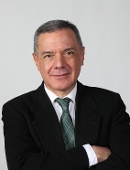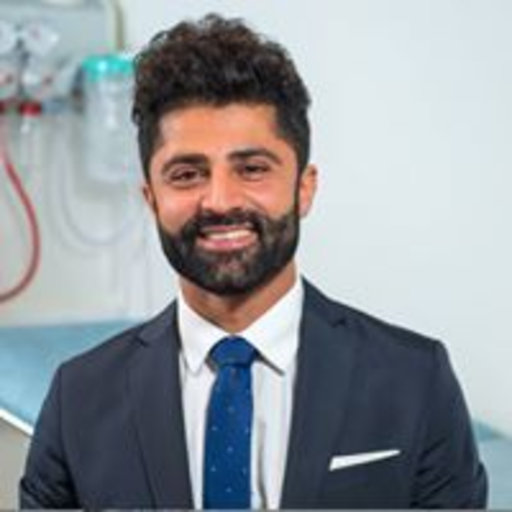
Prof. Ane Johannessen – Head of Assembly 6
Q: As Head of Assembly 6, what are you most looking forward to about this year’s ERS Congress?
The ERS Congress consistently stands out as the premier annual event for cutting-edge scientific updates and unparalleled networking opportunities among researchers and clinicians. I am very much looking forward to engaging with these core elements again this year.
The 2025 congress theme, “Respiratory Health Around the Globe,” provides an exciting and highly relevant framework that emphasises global collaboration, knowledge exchange, and mutual inspiration across diverse healthcare settings.
For Assembly 6, we are proud to have received a large number of high-quality abstract submissions from our members, spanning a wide array of thematic areas. I will be especially excited to experience first-hand the breadth and depth of our Assembly’s work through witnessing the oral presentations and poster sessions, as well as the epidemiology symposia, hot topic discussions, and engaging pro/con debates.
Additionally, I am looking forward to returning to Amsterdam as the congress venue. My previous experiences with ERS congresses held there have been greatly positive, and I anticipate this year’s event will be equally well-organised – if not even more impressive.
Q: What in your opinion will be the hot topics for epidemiology and environment?
Within Assembly 6, I believe several key topics will take centre stage this year, particularly those aligned with the overarching global challenges of our time. Climate change and air pollution remain critical areas of concern, with growing evidence of their profound impact on respiratory health. Occupational exposures also continue to be a vital area of research, as does the investigation into the potential adverse health effects of emerging new tobacco and nicotine products.
Another increasingly prominent focus is the exposome approach to understanding respiratory disease development. This holistic framework considers the totality of environmental exposures an individual encounters throughout their life course – and probably even across generations – and examines how these exposures interact with health and disease trajectories.
Several sessions from Assembly 6 will delve into these pivotal themes, offering fresh insights and paving the way for exciting new research directions.
Q: Tell us your top three picks from the congress programme.
Limiting it to top three picks is challenging, but I particularly look forward to the following three sessions at the upcoming Congress:
1. Symposium – Natural and man-made disasters: a new global norm?
Sunday 28 September, 13:45–15:15 CEST
Disasters such as the COVID pandemic, warfare, industrial accidents, wildfire, heat waves, and many others, seem to be becoming the new norm and no part of the world seems to be spared. We need knowledge on short- and long-term effects of such disasters, and we need to learn how to respond to them and mitigate their detrimental effects. Through this session we will identity important pieces in this puzzle, and will build knowledge sorely needed to create a better future globally.
2. Pro-Con debate – Are e-cigarettes effective smoking cessation tools or public health hazards?
Saturday 27 September, 11:00–11:45 CEST
This session will provide important insights on current scientific evidence supporting and opposing the use of cigarettes and will include perspectives on risks of youth vaping and long-term health outcomes of e-cigarettes. Through the session presentations and the discussion initiated by these we will be better enabled to address uncertainties and pinpoint areas in need of further research.
3. Symposium– Importance of the exposome in prevention and treatment of chronic lung diseases
Sunday 28 September, 08:30–10:00 CEST
The session aims to identify existing exposome knowledge and remaining gaps for future research from different angles, combining multiple ERS assemblies in a joint effort to better understand the exposome approach. I believe this session will serve both as an educational session as well as spark an exciting debate on the part holistic exposome approach should play in future respiratory research. Also, the session derives from a newly launched ERS clinical research collaboration (CRC) project: the EXPLAIN-IT (Exposome and prevention of lung diseases, an international interdisciplinary translational network) project, currently recruiting interested members for the research network – so the symposium will also be relevant for those considering to join this CRC, as well as for all ERS participants interested in the exposome in general.
For me, these sessions are undoubtedly highlights of the upcoming Congress. However, I must emphasise that selecting only three is far from sufficient – this year’s programme is truly state-of-the-art. With so many high-quality sessions on offer, I know I’ll face the familiar challenge of trying to attend everything I’d like to in Amsterdam. As always, the ERS Congress will be intense and demanding in that regard – but absolutely worth it. For me, the ERS Congress is the definite scientific highlight of the year when it comes to staying at the forefront of respiratory research.

Prof. Dr Rafael E. de la Hoz – Secretary of Assembly 6
Q: As Secretary of Assembly 6, what are you most looking forward to about this year’s ERS Congress?
The ERS Congress is a leading international meeting for clinicians and investigators striving to improve respiratory health around the world through optimisation of clinical practice and translation of all lines of research (basic, clinical, epidemiological). But this year, the Congress is proposing that the goal of improving respiratory health will require a global strategy, and that prevention should form the basis of that strategy.
Q: What in your opinion will be the hot topics for epidemiology and environment?
Although called “Epidemiology and Environment”, prevention is the core mission of Assembly 6. Epidemiology identifies actionable risk factors in respiratory health. Occupational and environmental health seeks to identify preventive measures from interventions on the environment and the workplace. Smoking cessation, of course, seeks to prevent and eliminate exposure to one of the worst toxicants that mankind has devised for its own self-destruction. The programme of ERS this year encompasses all of those topics comprehensively, with sessions describing the role of the exposome in determining respiratory development and health through the lifespan, the persistent disease burden associated with tobacco smoking, the multiple challenges created by increasingly frequent disasters, to the transfer of occupational hazards to countries with weaker regulatory environments.
Q: Tell us your top three picks from the congress programme.
1. Hot topics – Small lungs, big consequences
Monday 29 September, 08:30–10:00 CEST
This session will examine multiple aspects of the highly prevalent non-specific restrictive lung function impairment (small lungs, PrISM, low FVC) in clinical practice, and its association with morbidity and mortality as proposed more than a century and a half ago by the inventor of the spirometer.
2. Mini symposium – A global perspective on occupational lung disease: moving from diagnosis to action
Sunday 28 September, 15:30–17:00 CEST
This session will highlight the global and regional burden of occupational lung disease, and the challenges to achieving their control in the face of larger socioeconomic and political determinants.
3. Symposium – Global respiratory health and tobacco: challenges, impacts and pathways to a smoke-free future
Tuesday 30 September, 13:45–15:15 CEST
A session based on abstracts submitted across various assemblies, showcasing translational research on extracellular vesicles as biomarkers of various lung diseases, but also providing insight into mechanisms through which they contribute to disease pathogenesis and progression.

Howraman Meteran – Early Career Member (ECM) Representative of Assembly 6
Q: As ECM Representative of Assembly 6, what are you most looking forward to about this year’s ERS Congress?
I am very much looking forward to participating in the Networking Excellence Training (NEXT) Programme, which is an annual initiative of the ECM Committee, taking place on 27 September. The NEXT programme aims to provide support and opportunities for ECMs with various professional backgrounds in the field of respiratory medicine. The participants will hopefully gain new skills through lectures, practical exercises, and group work facilitated by a highly skilled faculty, many of whom are Early Career Representatives from the various assemblies. Furthermore, I look forward to chairing, listening to, and learning from the broad range of sessions within our assembly, which cover various respiratory diseases, with environmental factors and epidemiology as the common denominators.
Q: In your opinion, what will be the highlights for ECMs in Assembly 6 during the ERS Congress?
I hope that our ECMs take advantage of all the educational and social activities offered before and during the Congress. The postgraduate courses give a unique opportunity to dig into a topic/disease of interest, and you will get a chance to meet other congress participants with the same interest. Spending a whole day in a forum with leading experts and like-minded participants fosters new insights, expands your network, and facilitates further collaboration.
I want to congratulate all the participants who will be presenting their projects at the Congress. I also hope there will be time and energy to attend other sessions, including those on topics outside one’s own daily work. Sometimes the best ideas and inspiration arise from entirely different disease areas. Finally, I will encourage the ECMs to come by the World Village on Sunday 28 September, from 12:15-13:30 CEST, where we will have a “Meet your ECM” session together with other assemblies.
Q: Tell us your top three picks from the congress programme.
The Congress theme this year is “Respiratory Health Around the Globe”, a highly relevant topic given everything happening worldwide. There are many excellent sessions – both poster and oral presentations – and it can be difficult to choose between them. I therefore strongly recommend preparing in advance by reviewing the programme and paying attention to which sessions may also be available after the Congress. However, I would like to highlight these three sessions, which sound particularly exciting. They not only cover a wide range of topics but also aim to make the global perspective operational in practice:
1. Symposium – Importance of the exposome in prevention and treatment of chronic lung diseases
Sunday 28 September, 08:30–10:00 CEST
2. Mini symposium – A global perspective on occupational lung disease: moving from diagnosis to action
Sunday 28 September, 15:30–17:00 CEST
3. Hot topics – Prevention in focus: a 360° view from global health to local practice
Monday 29 September, 10:15–11:45 CEST

 ERS Respiratory Channel
ERS Respiratory Channel
 ERS Respiratory Channel
ERS Respiratory Channel





